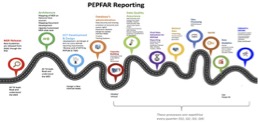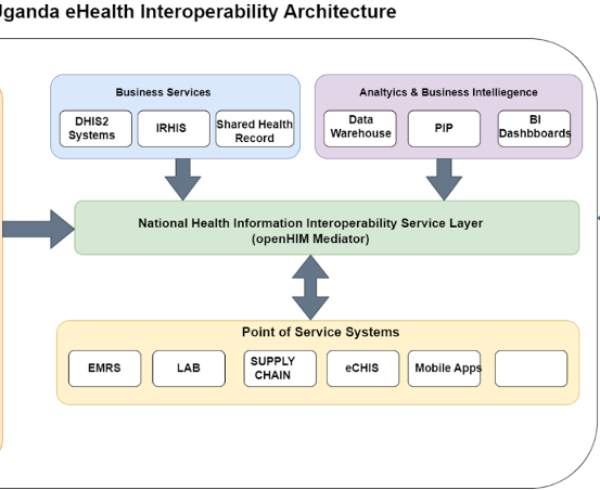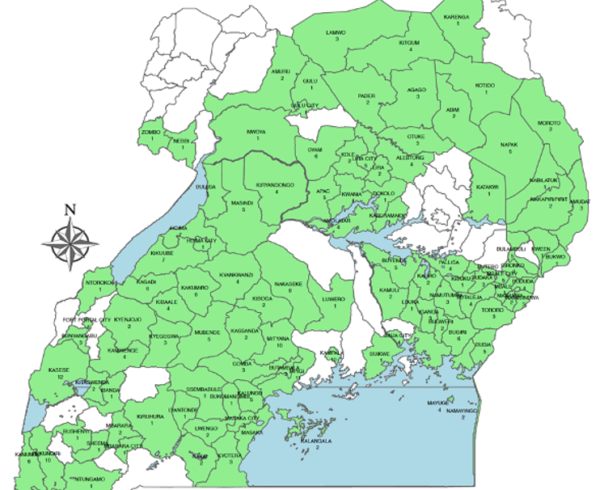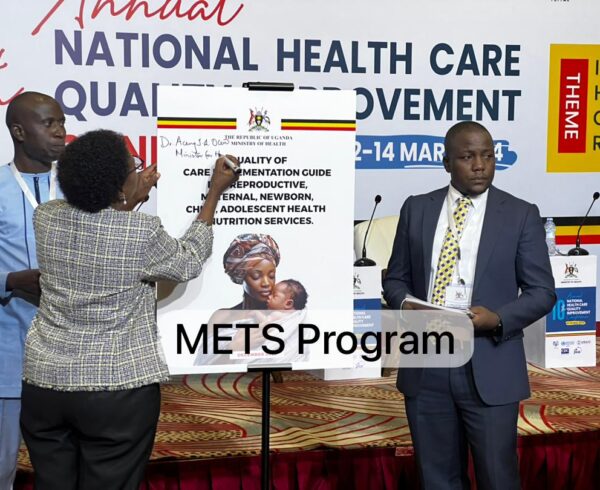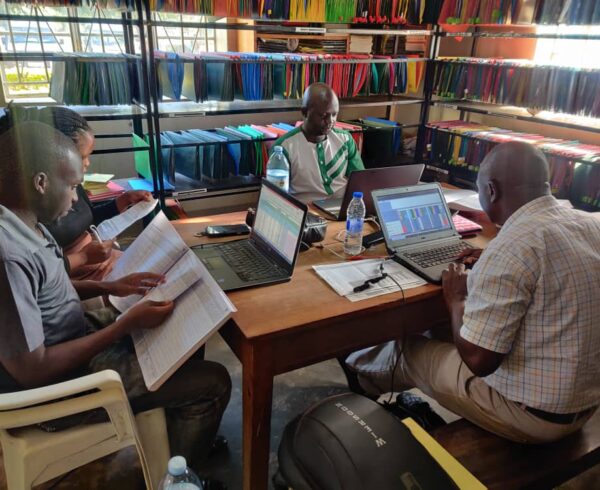By Fatumah Nalubega & Nancy Karunganwa
As of October 2021, the MakSPH-METS Program was ear marked as CDC’s flagship partner for data management and named lead Strategic Information (SI) for PEPFAR. METS has since provided solutions/support in the areas of health information systems, data analysis and Epi/surveillance for HIV/TB, COVID19, Ebola Virus disease (EVD) while leveraging on PEPFAR investments. METS developed a reporting system, the PEPFAR In-country reporting system (PIRS) and facilitated automated online surge weekly reporting system which is pivotal for interagency reporting mandate.
Throughout the year, METS has accessed, mined, processed, and compiled data from District Health Information Software-2 (DHIS2) and other sources to meet PEPFAR reporting requirements and data needs including disaggregation of data to comply with PEPFAR Monitoring, Evaluation and Reporting (MER) requirements. This assisted timely PEPFAR quarterly quantitative and qualitative reporting.
The success of this role was built on executing a number of tasks which included; 1) national, regional, and sub-national level data cleaning including monitoring timeliness and completeness of reporting, 2) data quality assurance and control (QA &QC) for all data in different reporting systems, 3) design of data collection tools based on MER indicator reference guide, 4) development of slide decks (SOPs) for the MER reference guide that was shared with implementing partners (IPs) to serve as training material for PEPFAR reporting requirements.
Others include regularly updating the DAPTS list to include all PEPFAR supported sites, provision of analytics as required by the various USG/GOU entities and timely update of indicator map and administrative units including health facilities to ensure alignment to national systems (DHIS2 & National OVCMIS).
Below is the summarized Report generation road map;
METS and SITES organizes the partner dialogue meetings that brought together different stakeholders from MoH, PEPFAR SI representatives, IPs, PEPFAR Coordination Office, and Regional Referral Hospitals. The dialogue identified areas of overlap/mutual interest, that will highlight areas of potential partnership and encouraged candid exchange of experiential knowledge to speed up the transfer of knowledge. Importantly, the exercise also served to identify relationships where influence can be leveraged, and learning engaged.

